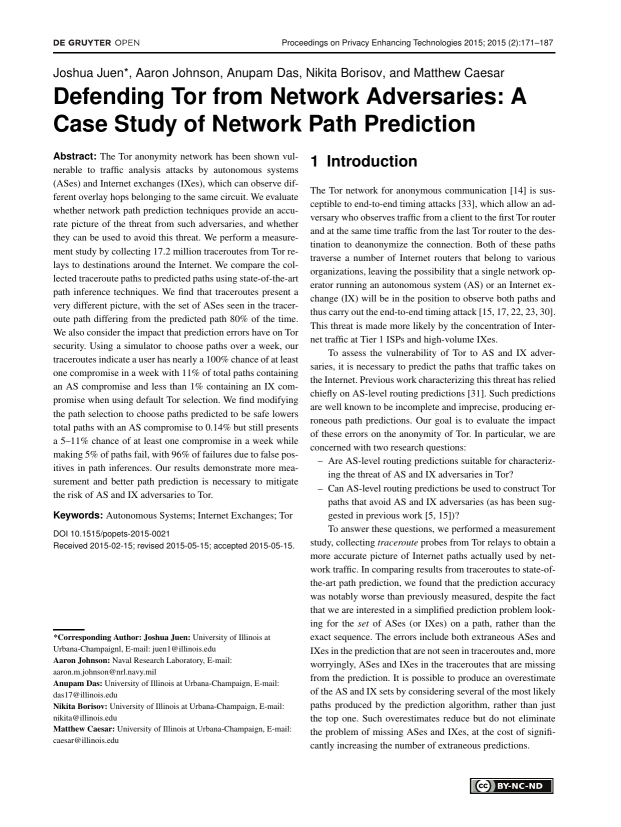Defending Tor from Network Adversaries: A Case Study of Network Path Prediction
Authors: Joshua Juen (University of Illinois at Urbana-Champaignl), Aaron Johnson (Naval Research Laboratory), Anupam Das (University of Illinois at Urbana-Champaign), Nikita Borisov (University of Illinois at Urbana-Champaign), Matthew Caesar (University of Illinois at Urbana-Champaign)
Volume: 2015
Issue: 2
Pages: 171–187
DOI: https://doi.org/10.1515/popets-2015-0021
Abstract: The Tor anonymity network has been shown vulnerable to traffic analysis attacks by autonomous systems (ASes) and Internet exchanges (IXes), which can observe different overlay hops belonging to the same circuit. We evaluate whether network path prediction techniques provide an accurate picture of the threat from such adversaries, and whether they can be used to avoid this threat. We perform a measurement study by collecting 17.2 million traceroutes from Tor relays to destinations around the Internet. We compare the collected traceroute paths to predicted paths using state-of-the-art path inference techniques. We find that traceroutes present a very different picture, with the set of ASes seen in the traceroute path differing from the predicted path 80% of the time. We also consider the impact that prediction errors have on Tor security. Using a simulator to choose paths over a week, our traceroutes indicate a user has nearly a 100% chance of at least one compromise in a week with 11% of total paths containing an AS compromise and less than 1% containing an IX compromise when using default Tor selection. We find modifying the path selection to choose paths predicted to be safe lowers total paths with an AS compromise to 0.14% but still presents a 5–11% chance of at least one compromise in a week while making 5% of paths fail, with 96% of failures due to false positives in path inferences. Our results demonstrate more measurement and better path prediction is necessary to mitigate the risk of AS and IX adversaries to Tor.
Keywords: Autonomous Systems; Internet Exchanges; Tor
Copyright in PoPETs articles are held by their authors. This article is published under a Creative Commons Attribution-NonCommercial-NoDerivs 3.0 license.

